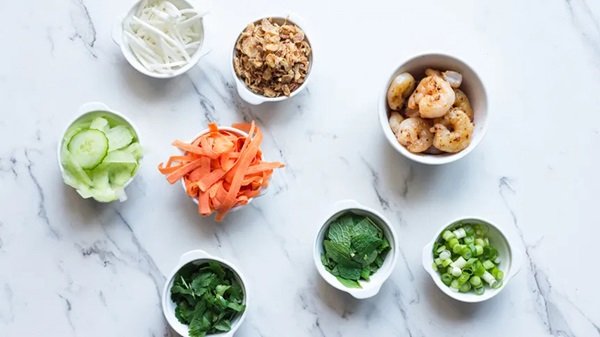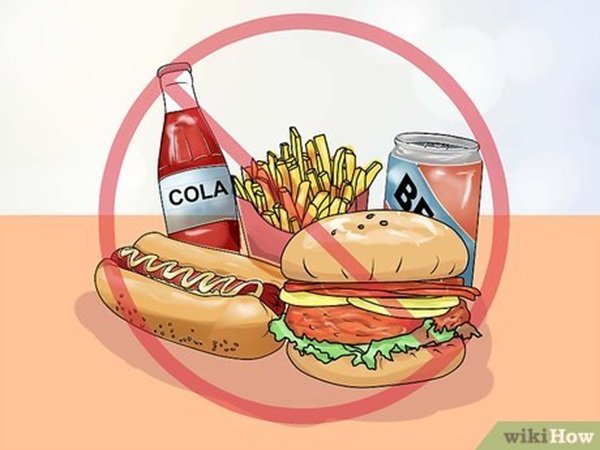
Drink More Water
Drinking water instead of sugary beverages like soda or juice is one of the simplest ways to cut calories. Water keeps you hydrated, helps flush out toxins, and can suppress your appetite. Drinking a glass of water before meals can make you feel fuller, helping you eat less. Staying well-hydrated also supports your metabolism, which is crucial for weight loss.
- More Info -

Eat More Protein
Protein is essential for weight loss because it helps build and repair muscle tissue, boosts metabolism, and keeps you feeling full longer. By including more protein-rich foods like eggs, chicken, tofu, and legumes in your diet, you can reduce hunger and curb cravings, leading to lower calorie intake. Protein also has a higher thermic effect, meaning your body burns more calories digesting it compared to fats or carbs.
- More Info -

Cut Down on Sugary Snacks
Sugary snacks are high in empty calories and can lead to rapid spikes and crashes in blood sugar levels, making you feel hungrier sooner. Reducing your intake of candies, cookies, and cakes can significantly decrease your overall calorie consumption. Instead, opt for healthier snacks like fruits, nuts, or yogurt, which provide essential nutrients and keep you satisfied without the sugar rush.
- More Info -

Increase Fiber Intake
Fiber-rich foods, such as whole grains, fruits, and vegetables, are key to weight loss because they help you feel full longer, reduce appetite, and improve digestion. Fiber slows the absorption of sugar into the bloodstream, preventing blood sugar spikes that can lead to fat storage. By increasing your fiber intake, you can naturally reduce your calorie consumption and improve your overall health.
- More Info -

Get Regular Sleep
Sleep is a crucial but often overlooked factor in weight loss. When you don’t get enough sleep, your body produces more ghrelin, the hormone that stimulates appetite, and less leptin, the hormone that signals fullness. This hormonal imbalance can lead to increased hunger and cravings, particularly for high-calorie foods. Aim for 7-9 hours of quality sleep per night to support your weight loss efforts.
- More Info -

Portion Control
Managing portion sizes is a simple way to reduce calorie intake without feeling deprived. By being mindful of how much you’re eating, you can avoid overeating and control your weight more effectively. Use smaller plates, serve smaller portions, and resist the urge to go back for seconds. Over time, your body will adjust to these smaller portions, helping you eat less and lose weight.
- More Info -

Walk More
Walking is an easy and accessible form of exercise that can help you burn extra calories and improve your overall health. It doesn’t require special equipment or a gym membership, and you can incorporate it into your daily routine by taking the stairs, parking further away, or going for short walks during breaks. Walking also helps reduce stress and improve mood, both of which can support weight loss.
- More Info -

Avoid Processed Foods
Processed foods are often high in added sugars, unhealthy fats, and empty calories, all of which can contribute to weight gain. They are also low in essential nutrients, leading to overeating as your body craves the nutrition it’s missing. By focusing on whole, unprocessed foods like fruits, vegetables, lean proteins, and whole grains, you can naturally reduce calorie intake, improve your nutrition, and support weight loss.
- More Info -

Mindful Eating
Mindful eating involves paying full attention to the experience of eating and enjoying your food without distractions. This practice can help you recognize when you’re truly hungry and when you’re full, preventing overeating. It also encourages healthier food choices, as you become more aware of what you’re eating and how it makes you feel. By slowing down and savoring each bite, you can better manage your weight and improve your relationship with food.
- More Info -

Reduce Stress
Chronic stress can lead to emotional eating and cravings for high-calorie, comfort foods. It can also increase the production of cortisol, a hormone that promotes fat storage, particularly around the abdomen. Managing stress through activities like yoga, meditation, or spending time on hobbies can help you avoid these pitfalls. By reducing stress, you can prevent weight gain and support a healthier lifestyle.
